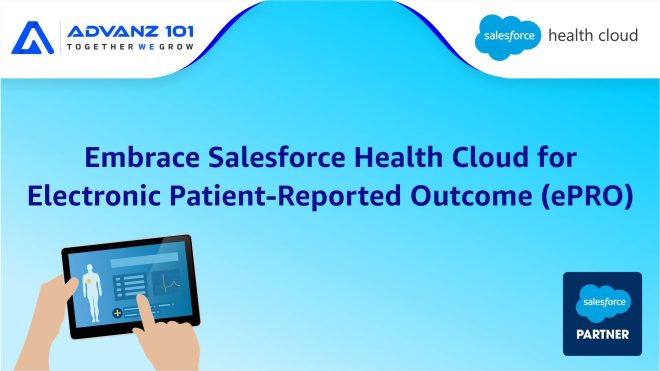The effectiveness of healthcare treatments and programs is assessed using outcome research results, i.e., outcomes of the healthcare system’s structure and procedures on the health and well-being of patients and the general public. It helps in identifying the best practices for patient care. It further aids in answering queries like (1) Are medical treatments effective? (2) What types of therapies work best for certain patient groups? (3) How do risk factors, such as a patient’s age, gender, or medical history, influence outcomes?
A patient’s direct report of their own health condition is known as a patient-reported outcome (PRO). It contrasts with an outcome that was reported by another person, such as a physician or nurse. In clinical trials and other therapeutic settings, PRO techniques like surveys and assessments are employed to better understand a treatment’s efficacy or effectiveness. In today’s healthcare systems, the usage of digitized PROs, also known as electronic patient-reported outcomes (ePROs) is growing.
Evaluations of healthcare performance metrics based on patient-reported outcomes are known as Patient-Reported Outcome-based Performance Measures (PRO-PM). They are used to evaluate a healthcare provider’s performance or the efficacy of a certain treatment based on the first-hand experiences of the patients involved. The Hospital Inpatient Prospective Payment System (IPPS) is a framework that Centers for Medicare & Medicaid Services (CMS) introduced in a proposed rule to reward healthcare providers for delivering high-quality care. Under this proposed rule, the agency will evaluate the quality of care provided across healthcare settings using patient-reported outcome-based performance metrics (PROMs). These rules are designed to encourage healthcare providers to concentrate on patient outcomes and experiences rather than just the procedures used to deliver healthcare services to raise the quality of care patients receive.
A PRO questionnaire assesses either a single underlying characteristic or multiple characteristics. This measurement of characteristics is known as ‘constructs’. A questionnaire that measures a single construct is described as uni-dimensional while one that measures multiple constructs is termed multi-dimensional. Here are some guidelines for creating an effective patient-reported outcome assessment or survey:
- Questions should be relevant, concise, and have uniform response categories.
- Questions should cover the patient’s experiences before, during, and after treatment or care.
- Questions should be formulated to allow patients to express their opinions and experiences objectively.
- A way to measure and track progress should be included in the outcome.
- PRO assessments should clearly define their target population.
- The PRO tool should also be validated and able to provide the necessary quantitative results that can be helpful for clinical decision-making and research.
- Generic questionnaires are made to be utilized in any disease group and cover a wide element of the construct (measurement characteristic) being examined. In contrast, condition-targeted questionnaires are made for a specific medical condition.
Thus, a well-constructed patient-reported outcome (PROs) questionnaire should include a comprehensive assessment of key areas that reflect a patient’s overall health and quality of life like physical health, mental health, social functioning, and routine daily tasks, as well as overall satisfaction with the care received.
Salesforce Health Cloud can be used to gather patient-reported outcomes that assist drug trials and improve medical care. Using its secure and user-friendly interface, physicians may easily collect patient data. In order to make it simple for clinicians to access this information repeatedly, it can then be shared within a patient’s health record. Furthermore, the analysis and integration of patient-reported outcomes into the healthcare systems of payers or providers are made simple by Salesforce Health Cloud. Thus, Healthcare institutions can use it to store and analyze patient data to discover important information about patient populations. Salesforce Health Cloud Assessments use the Discovery Framework and OmniStudio to create more complex questionnaire for measuring patient-reported outcomes.
The following objects can be leveraged to design assessments in Health Cloud:
- Assessment: Stores the header data for an assessment.
- Assessment Question: Stores the questions required for an assessment.
- Assessment Question Set: It is a container object for assessment questions.
- Assessment Question Assignment: This shows where is an assessment question set, and an assessment question connect.
- Assessment Question Version: Stores the question versions for the assessment questions.
- Assessment Question Response: Stores the responses submitted to an assessment.
Multiple data types are supported while creating an assessment, like Checkbox, Date, Email, Formula, Integer, Select, Multi-select, Radio, Text, etc. Following are some of the benefits of using Salesforce Health Cloud for capturing Patient-Reported Outcomes:
- Create a question repository that can be used in multiple PROs assessments.
- The power to build complex forms with field-rendering logic.
- Distribute the form via email/SMS/WhatsApp and deploy the forms to the experience cloud site.
- Store responses along with question versions.
- Ensure end-to-end traceability of questions and responses for audit purposes.
- The assessment component can be added to the patient record page so care coordinators and call center agents can use it.
Salesforce Health Cloud provides a comprehensive patient-engagement platform that allows clinicians to acquire, organize, and act on patient-reported outcome data. In Health Cloud, patient-reported outcome surveys and assessment results are stored in a patient’s timeline, helping doctors and care teams gain insight and make better decisions.
With many years of experience in healthcare IT and associated technologies, Advanz101 Business Systems is a trusted partner of Salesforce CRM solutions and consulting services.
Learn more about how Advanz101 Systems can help you overcome the challenges of adopting Salesforce Health Cloud.


